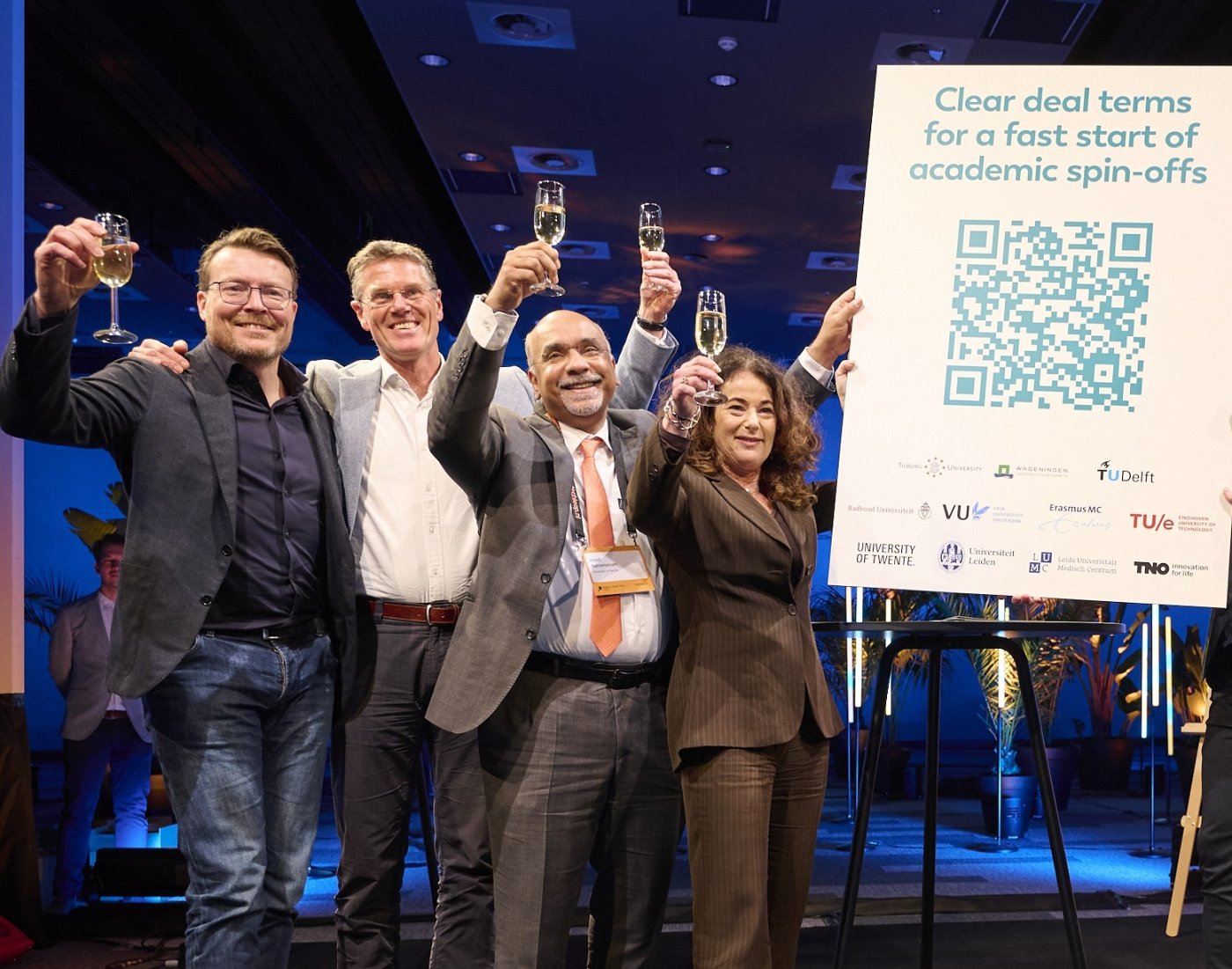Departure Mirjam van Praag and Pieter Duisenberg - two persons of major significance for the academic startup ecosystem
In September, both Mirjam van Praag and Pieter Duisenberg resigned from their chairmanships at VU Amsterdam and Universities of the Netherlands respectively. From their positions, both persons played a vital role in promoting entrepreneurship at universities and were at the forefront of the national Science to Impact movement.
Mirjam was already intensively engaged with startups as an entrepreneurship professor, but a visit to Silicon Valley in 2019 - shortly after she took office as VU president - triggered an acceleration on a national level. There she was together with Pieter and the presidents of the Dutch universities for inspiration. They ended up in a café in San Francisco together and then started brainstorming how it could be easier to set up a startup as an entrepreneurial scientist in the Netherlands too.
It turned out to be a fruitful meeting. Building on previous initiatives Mirjam, Pieter and the chairs there devised both the idea of the Academic Startup Competition - a competition between the best 20 academic startups in the Netherlands - and the Faculty of Impact - a two-year programme in which scientists are coached in turning their idea into a business.
During the same trip, they also met Constantijn van Oranje who, from his position as Special Envoy of Techleap.nl, shared the same drive to get more impact out of scientific research. Both the Academic Startup Competition and the Faculty of Impact have been realised with support from organisations such as NWO, UNL, NAE and Techleap.nl.
Together with Constantijn van Oranje, Mirjam and Pieter were the first ambassadors of ‘Science to Impact’, a movement launched in 2021 to strengthen the academic startup climate, acting as a flotilla of large and small ships, each with its own role and at its own speed, moving in a common direction. Science to Impact has identified 9 key issues to be worked on at the system level to get more of 'the top science' we have in the Netherlands into application.
A crowning achievement for Mirjam and Pieter was the launch of a first set of standard dealterms earlier this year. The dealterms are an important tool to speed up the negotiation process between knowledge institutions and spin-offs. A working group of entrepreneurs, investors and universities, chaired by Techleap.nl, drafted a first version of usable dealterms. Universities of the Netherlands has published the dealterms and will play an important role in updating them and increasing the group of universities and other knowledge institutions that will start using them.
The idea the directors had at that time in San Francisco is gradually beginning to materialise. In the past five years, a lot of attention has been paid to the importance of academic startups, and more and more people are committed to this at various levels. This is happening, among other things, in the 'Valorisation Delta Plan' proposal on which a working group with representatives from across the startup ecosystem is collaborating and for which the National Growth Fund has earmarked €417m.
The start-up ecosystem will certainly miss Mirjam and Pieter's enthusiasm as chairmen, but current developments show that their impact will be lasting.
